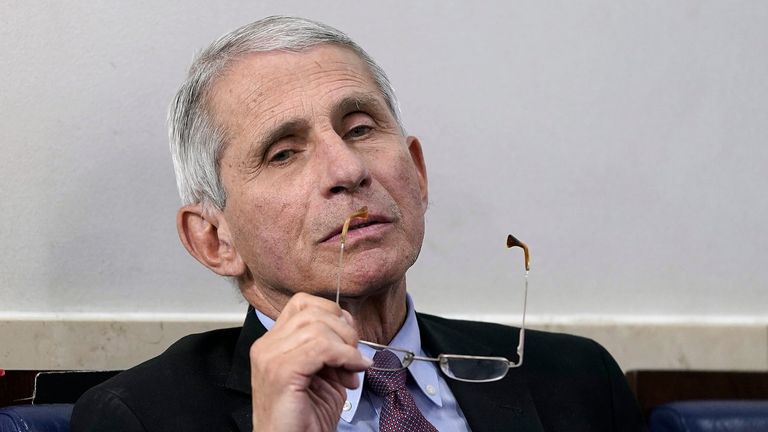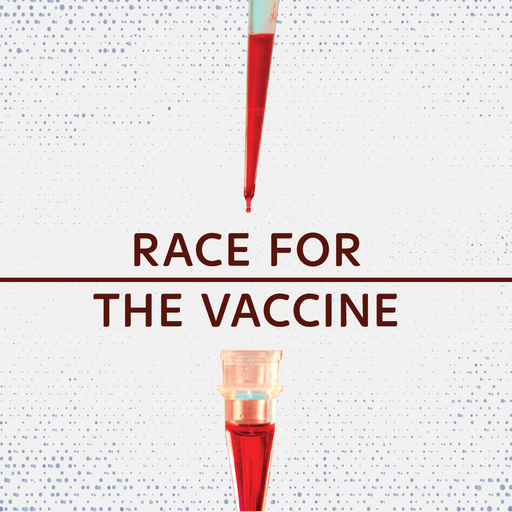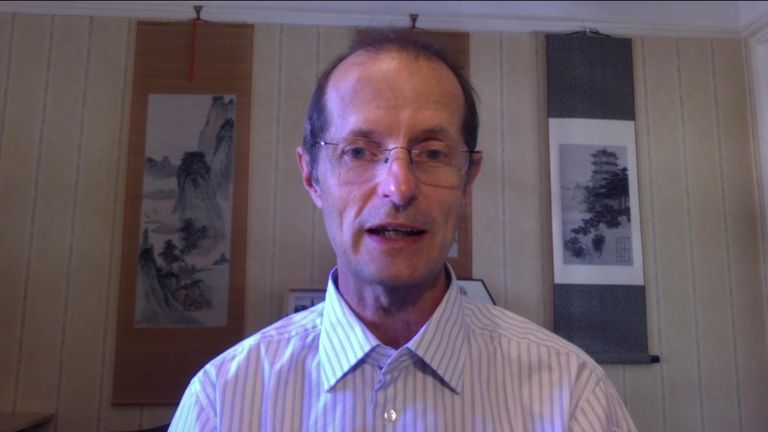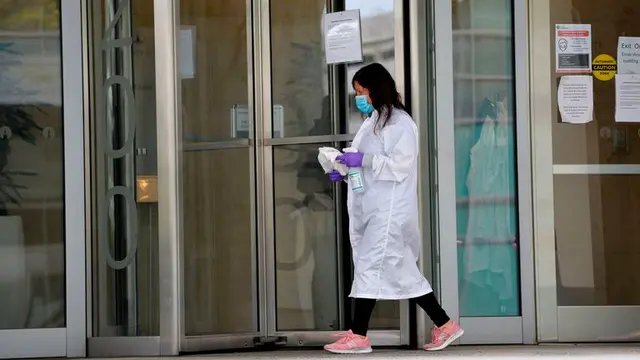An experimental COVID-19 vaccine being trialled in the US has worked to boost patients' immune systems and proved safe in a group of 45 volunteers, researchers have said.
Volunteers given two doses of the vaccine - developed by biotech company Moderna - had more protective antibodies than the average
coronavirus
survivor, the team reported in the New England Journal of Medicine.
The trial, which is being supported by the US government with nearly half a billion dollars, is one of more than 100 vaccines being developed around the world in the race to beat
COVID-19
.
Dr Anthony Fauci
, the US government's top infectious diseases expert, has said: "No matter how you slice this, this is good news."

Image:Dr Fauci has hailed the development as 'good news'
The latest results from Moderna are from a phase one trial, after an initial trial of eight people showed the vaccine was safe and produced antibodies in volunteers.
Moderna began its phase two trial in May, which will involve a larger group, and an even bigger phase three trial of 30,000 volunteers is expected to get under way later this month.
A phase one study uses a small number of volunteers and focuses on whether the vaccine is safe and produces an immune response, while a phase two study is expanded to people whose characteristics make them likely to be most in need of the vaccine - such as their age and physical health.
In a phase three study, the vaccine is given to thousands of people and can identify rare side effects.
None of the 45 volunteers involved in the phase one trial suffered serious side effects, although more than half reported mild or moderate reactions including fatigue, headache, chills, muscle aches or pain at the injection site.

Race for the vaccine
**:: Listen to the Daily podcast on **
Apple Podcasts
**, Google Podcasts
, Spotify
, Spreaker
**
The volunteers, who were aged between 18 and 55, were given three doses of the vaccine.
Researchers tested doses of 25, 100 or 250 micrograms - with those who were given the highest doses being more likely to experience side effects.
Seven of the 13 volunteers who got the second 25 microgram dose experienced side effects, while all 15 who received the 100 microgram dose and all 14 who got the 250 microgram dose also noticed side effects.
Three participants were not given a second dose, as two were forced to self-isolate with coronavirus symptoms and another had hives believed to be related to the first dose of the vaccine.
The two participants with coronavirus symptoms later tested negative for the virus.

UK would come first for Imperial vaccine rollout
Dr Lisa Jackson, lead author of the study from the Kaiser Permanente Washington Health Research Institute, said researchers "didn't see any events that are characterised as serious adverse events" - such as reactions requiring hospital visits or deaths.
Dr William Schaffner, a vaccine expert at Vanderbilt University Medical Center who was not involved in the study, said the results were a "good first step".
"There's nothing here that would inhibit one from going ahead to the phase two/phase three trials," he added.

UK will have 30m vaccine doses by Sept - if it works
Scientists are also optimistic about UK vaccine trials, including those conducted by the
University of Oxford
and Imperial College London.
Professor Robin Shattock, who heads the team developing the Imperial College effort, told Sky News that a COVID-19 vaccine could be rolled out across the country in the first half of next year if trials are successful.
Speaking to
Sophy Ridge on Sunday
, he added: "We anticipate if everything goes really well, that we'll get an answer as to whether it works by early next year."
Sky News is supporting the DEC's new appeal to raise funds for lifesaving aid, such as clean water, soap, PPE and food, to help save lives as coronavirus hits refugee camps and war-torn countries like Yemen, Syria, Somalia and South Sudan.
To donate £10 to the DEC Coronavirus Appeal text the word SKY to 70150 or call 0370 60 60 900. You can also donate online at dec.org.uk
 简体中文
简体中文

